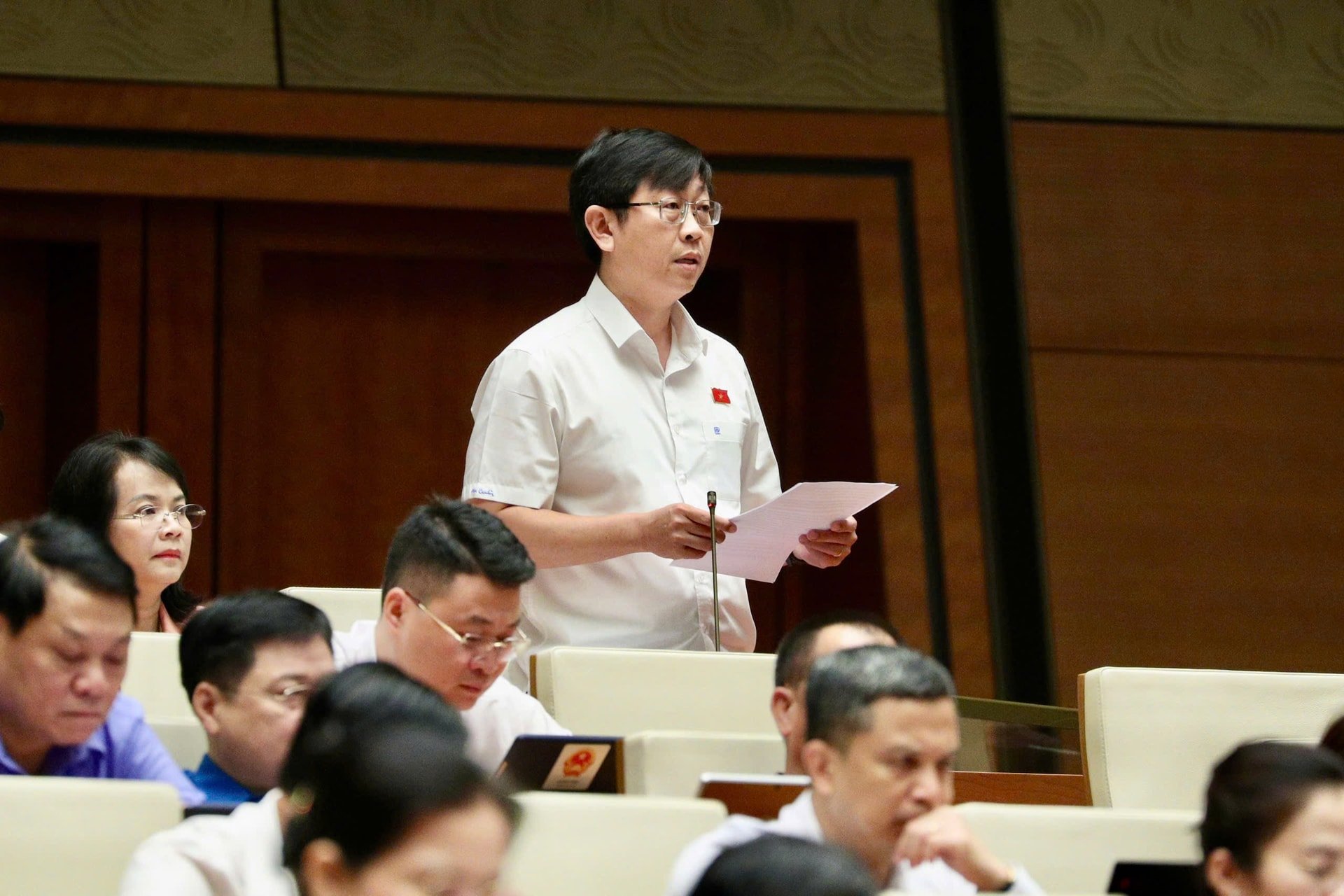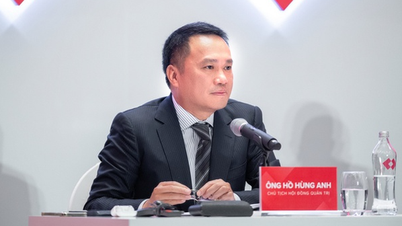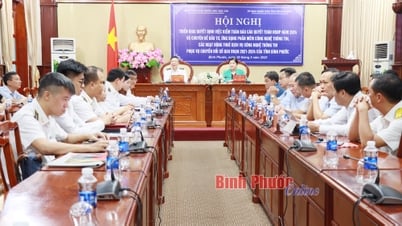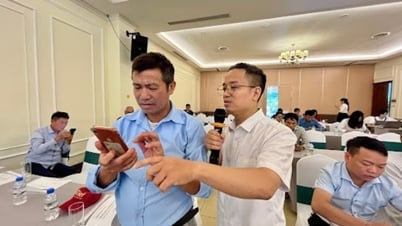Delegate Nguyen Huu Thong - Deputy Head of the National Assembly Delegation of Binh Thuan province discussed at the hall on the morning of May 29
Regarding the regulation of special lending interest rate of 0%/year (amended Clause 1, Article 193), delegates assessed that this is a strong support policy, clearly demonstrating the role of the State Bank in supporting credit institutions in particularly difficult situations, in order to maintain the safety of the financial and banking system. However, the regulation of 0%/year interest rate without specific application conditions can lead to policy abuse, create risks, distort the competitive environment between credit institutions and increase pressure on the national budget. This regulation is also likely to contradict market principles, affecting the efficiency of state resource use if there is no control mechanism. Delegates suggested that it is necessary to specifically stipulate that: "0% interest rate only applies to credit institutions under special control, compulsory restructuring or having a systemic impact on national financial stability". At the same time, supplement the mechanism for monitoring, publicizing and evaluating the effectiveness of the use of this special loan source.
Regarding the right to seize secured assets (Article 198a), delegates commented that the legalization of the mechanism for seizing secured assets of credit institutions is a positive new point, contributing to removing major obstacles in handling secured assets, reducing the rate of bad debts and improving the ability to recover debts. However, it is necessary to consider because allowing credit institutions to seize secured assets without a court decision in some cases may infringe on the legitimate ownership rights of citizens as stipulated in Articles 32 and 53 of the Constitution as well as the principle of respecting property rights in the Civil Code. Current regulations also do not clarify the mechanism for protecting the rights of the guarantor when complaints or disputes arise; and do not clearly stipulate the possibility of suspending or canceling the seizure in cases where there are signs of violations or ownership disputes. In addition, Clause 5, Article 198a stipulates that a representative of the People's Committee at the commune level shall participate in witnessing and signing the minutes of seizure of secured assets in cases where the guarantor does not cooperate or is absent. The delegate believes that this provision is not consistent with the Law on Organization of Local Government, because the law does not assign this responsibility to the commune level and commune-level officials do not have the authority to enforce civil law, which can easily lead to legal risks in practical implementation. Therefore, the delegate recommends that the seizure of secured assets should only be allowed in cases where the guarantor has a clear agreement in the contract, the assets are not in dispute and are legally subject to seizure; at the same time, it is necessary to specifically stipulate the monitoring mechanism and the right to appeal of the guarantor.
Regarding the seizure of assets that are secured assets (Article 198b), the delegate believes that determining the order of priority between credit obligations and enforcement obligations under civil judgments is reasonable. However, this may cause conflicts in actual enforcement if the validity of the security contract and the time when the priority right arises are not clearly defined. The delegate suggests adding provisions on the principles for determining the priority validity of security contracts and the coordination mechanism between civil enforcement agencies and credit institutions to ensure transparent handling and avoid disputes.
Regarding the return of collateral assets that are exhibits and evidence (Article 198c), delegates assessed that this is an important step forward to resolve the situation where many collateral assets are "suspended" due to being involved in criminal cases or administrative violations, causing delays in the process of handling bad debts of credit institutions. However, according to the provisions of the Law on Handling of Administrative Violations and the Criminal Procedure Code, the handling of exhibits is the right of the prosecuting agency, not subject to the control of a third party; in addition, the draft has not specified a specific time limit for the return of assets after meeting the conditions, which can easily lead to delay and lack of responsibility. Delegates requested the drafting agency to carefully review the above provisions, ensuring consistency, strictness, and high feasibility.
Source: https://baobinhthuan.com.vn/dai-bieu-nguyen-huu-thong-gop-y-nhieu-noi-dung-quan-trong-du-thao-luat-cac-to-chuc-tin-dung-130605.html



![[Photo] A delegation of 100 journalists from the Vietnam Journalists Association visits the soldiers and people of Truong Sa island district.](https://vphoto.vietnam.vn/thumb/1200x675/vietnam/resource/IMAGE/2025/5/30/0984a986227d4e988177f560d2e1563e)




![[Photo] Prime Minister Pham Minh Chinh attends the event "Digital transformation of the banking industry by 2025"](https://vphoto.vietnam.vn/thumb/1200x675/vietnam/resource/IMAGE/2025/5/29/0e34cc7261d74e26b7f87cadff763eae)


















































































Comment (0)